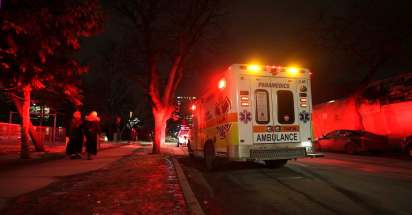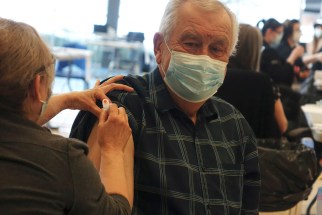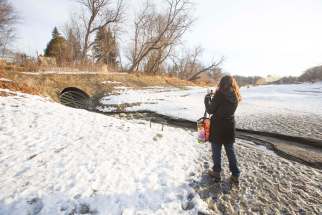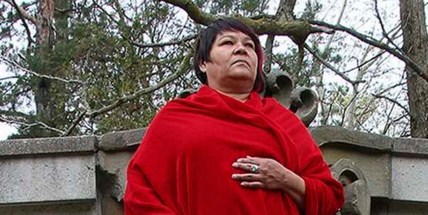Bleeding from a neck wound, but ambulance not moving "It wasn't good care at all," says Indigenous woman at centre of probe into racism in Winnipeg Fire Paramedic Service
Read this article for free:
or
Already have an account? Log in here »
To continue reading, please subscribe:
Monthly Digital Subscription
$0 for the first 4 weeks*
- Enjoy unlimited reading on winnipegfreepress.com
- Read the E-Edition, our digital replica newspaper
- Access News Break, our award-winning app
- Play interactive puzzles
*No charge for 4 weeks then price increases to the regular rate of $19.00 plus GST every four weeks. Offer available to new and qualified returning subscribers only. Cancel any time.
Monthly Digital Subscription
$4.75/week*
- Enjoy unlimited reading on winnipegfreepress.com
- Read the E-Edition, our digital replica newspaper
- Access News Break, our award-winning app
- Play interactive puzzles
*Billed as $19 plus GST every four weeks. Cancel any time.
To continue reading, please subscribe:
Add Free Press access to your Brandon Sun subscription for only an additional
$1 for the first 4 weeks*
*Your next subscription payment will increase by $1.00 and you will be charged $16.99 plus GST for four weeks. After four weeks, your payment will increase to $23.99 plus GST every four weeks.
Read unlimited articles for free today:
or
Already have an account? Log in here »
Hey there, time traveller!
This article was published 23/02/2021 (1749 days ago), so information in it may no longer be current.
As she lay in an ambulance bleeding from her neck, a Winnipeg woman wondered why it was taking so long to leave for the hospital.
The woman — the Free Press agreed not to use her name — is speaking publicly for the first time after finding herself at the centre of a high-profile controversy in the Winnipeg Fire Paramedic Service related to the treatment she received on a critical-care call in the North End last fall.
“That night was a low point for me,” the 23-year-old Indigenous woman said, referring to Oct. 7, when she stabbed herself in the throat with a broken beer bottle while in the throes of a mental-health crisis.
She was visiting a friend’s place at the time, and shortly after hurting herself, one of her friends called 911 for help. Several emergency units responded to the scene, including police, firefighters and paramedics.

“I struggle with some mental-illness problems… I was going through tough times with personal friendships and relationships in my life. And I guess I wasn’t taking care of myself,” she said.
But what happened after first responders arrived on scene that night has set off a firestorm of controversy, leading to media reports, press conferences with civic officials and a third-party investigation.
The investigation was sparked after a paramedic accused two of his firefighter colleagues of failing to provide proper medical care and delaying the woman’s transportation to hospital.
The consultant hired by the city to investigate the accusation found “implicit racial bias” against the patient and “racial animus” against the paramedic (a person of colour) likely impacted the actions of firefighters that night.
The investigator’s final report into the matter also concluded that members of the firefighter crew conspired to lie in an effort to obstruct the probe.
While the woman said she does not remember everything about that night, there are specific details seared into her memory. They are consistent with the evidence laid out in the final report, which the woman has not read in full.
“The one paramedic, obviously, was good. But the rest, I barely even saw them. I did feel like the rest of the people around… I felt like they were being judgmental,” she said.
“It was their body language and them not even really caring to ask me anything… I remember, specifically, most of them standing there with their arms crossed.”
The woman said she has been taken to hospital in ambulances before and always felt she received compassionate, timely care. But this time things were different.
“I actually remember thinking, ‘Why aren’t we going?’ I do remember the one paramedic, who was actually caring for me, I remember him trying to get someone into the ambulance but no one was going. I was kind of super-dizzy at that point,” the woman said.
“I just feel sad that something could have went wrong…. If someone else was put into my shoes I would feel so sorry for them. The way that it all went down wasn’t right. It wasn’t good care at all. It’s just upsetting.”
After a two-minute delay, one of the firefighters — who is also certified as a primary-care paramedic — got into the back of the ambulance so it could leave for the hospital, according to the final report. But the woman said the firefighter did not provide her with medical care, which meant she had to apply pressure to her own neck wounds — a fact consistent with the findings of the investigation.
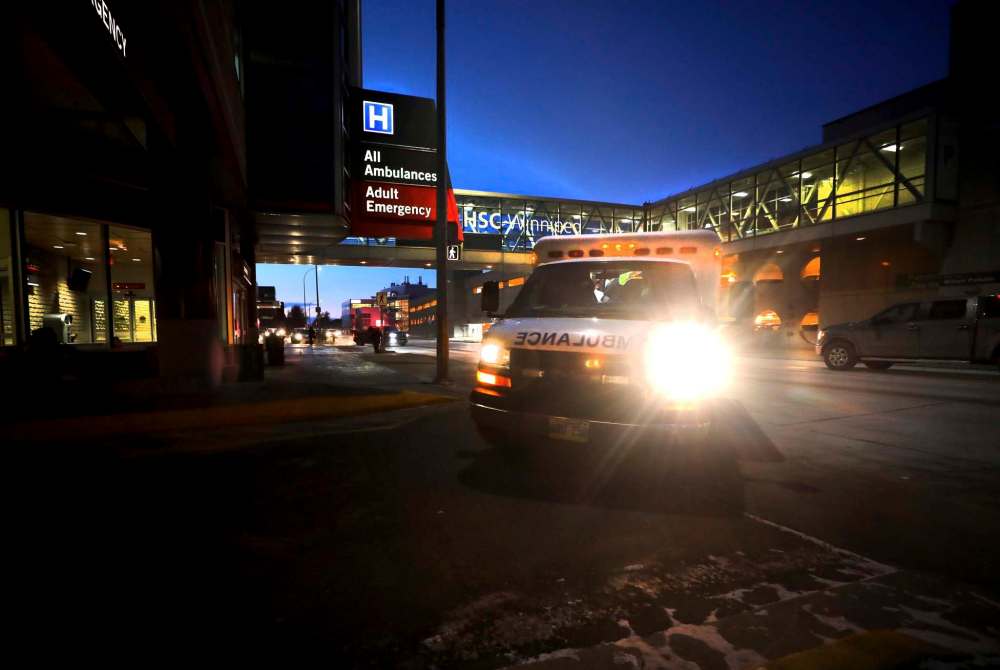
“I can’t remember the specifics but I do know for a fact that I was holding my own neck. I had a towel to my neck at first. I don’t know if I got it switched out or something. If it did get switched out they made me hold it again after that,” the woman said.
“I just felt crappy. Honestly, in the moment, I was like, ‘I did this to myself. It’s my fault.’ But after the fact, it kind of makes me feel like they didn’t want anything to do with me… I remember being really dizzy and weak and I don’t even know if I was holding my neck correctly.”
Once the probe into the incident got underway, the investigator tried contacting the woman by sending a letter to the home where she was when she injured herself. But since she doesn’t live there, the woman said, she didn’t know about the letter right away.
The woman also said she was no longer on good terms with one of the people who lives at the home, so she was provided limited details about what the letter said. As a result, she did not participate in the investigation.
No other attempts to contact her have been made by the city, she said, adding that to her, it feels like civic officials would have tried to “sweep it under the rug” if not for media coverage.
“I would have liked for them to have actually contacted me… I’m another person involved in this. I just feel like my opinion is valid too,” she said.
The city said it won’t comment on the incident while the matter remains under investigation.
The woman said she is doing much better now as far as her mental health. She also said she is happy the incident has received the attention it has.
“I’m glad the topic is being talked about. I don’t want this to happen again,” she said.
“For the people that did help me that night, I thank them for that, because I’m still here and I’m able to be better now.”
ryan.thorpe@freepress.mb.ca
Twitter: @rk_thorpe
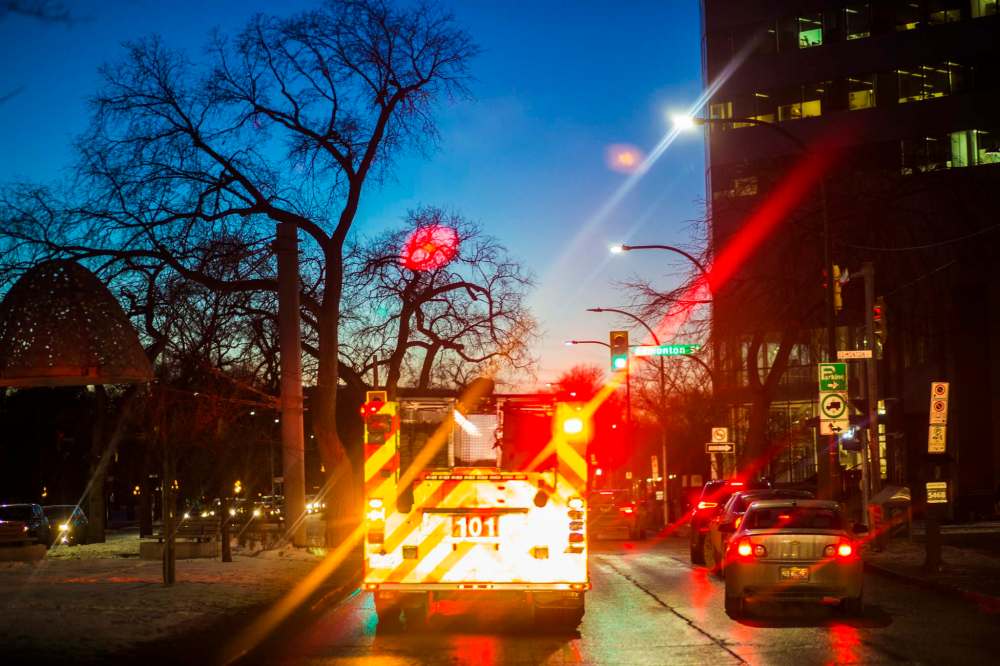

Ryan Thorpe likes the pace of daily news, the feeling of a broadsheet in his hands and the stress of never-ending deadlines hanging over his head.
Our newsroom depends on a growing audience of readers to power our journalism. If you are not a paid reader, please consider becoming a subscriber.
Our newsroom depends on its audience of readers to power our journalism. Thank you for your support.
History
Updated on Wednesday, February 24, 2021 8:30 AM CST: Minor corrections to photo cutlines











